Covid: Care staff vaccinations 'lagging behind target'
- Published
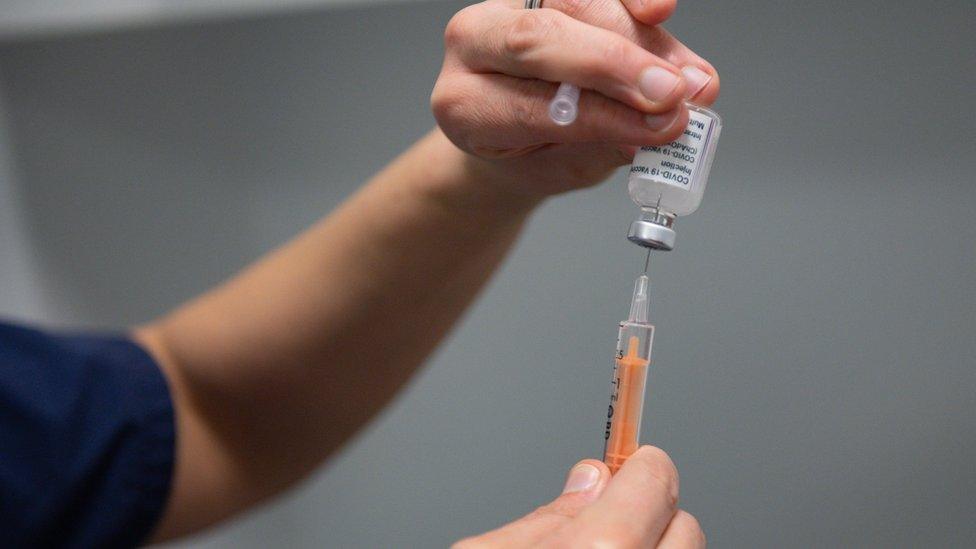
There is a worrying shortfall in the number of care staff to have had Covid vaccinations, a survey of almost 1,500 services in the UK suggests.
Nearly half of care homes for older people have more than 30% of staff who are as yet unvaccinated, according to the research from earlier this week.
And uptake for staff supporting people in their own homes and those working with younger adults is even lower.
A target of 15 February has been set to vaccinate all front-line care workers.
But only half the care homes for older people to respond to the survey by the National Care Forum, which represents not-for-profit care providers across the UK but mainly in England, had more than 70% of staff vaccinated.
And this was the case in just:
38% of the homes for working-age adults
a quarter of the services supporting people in their own homes
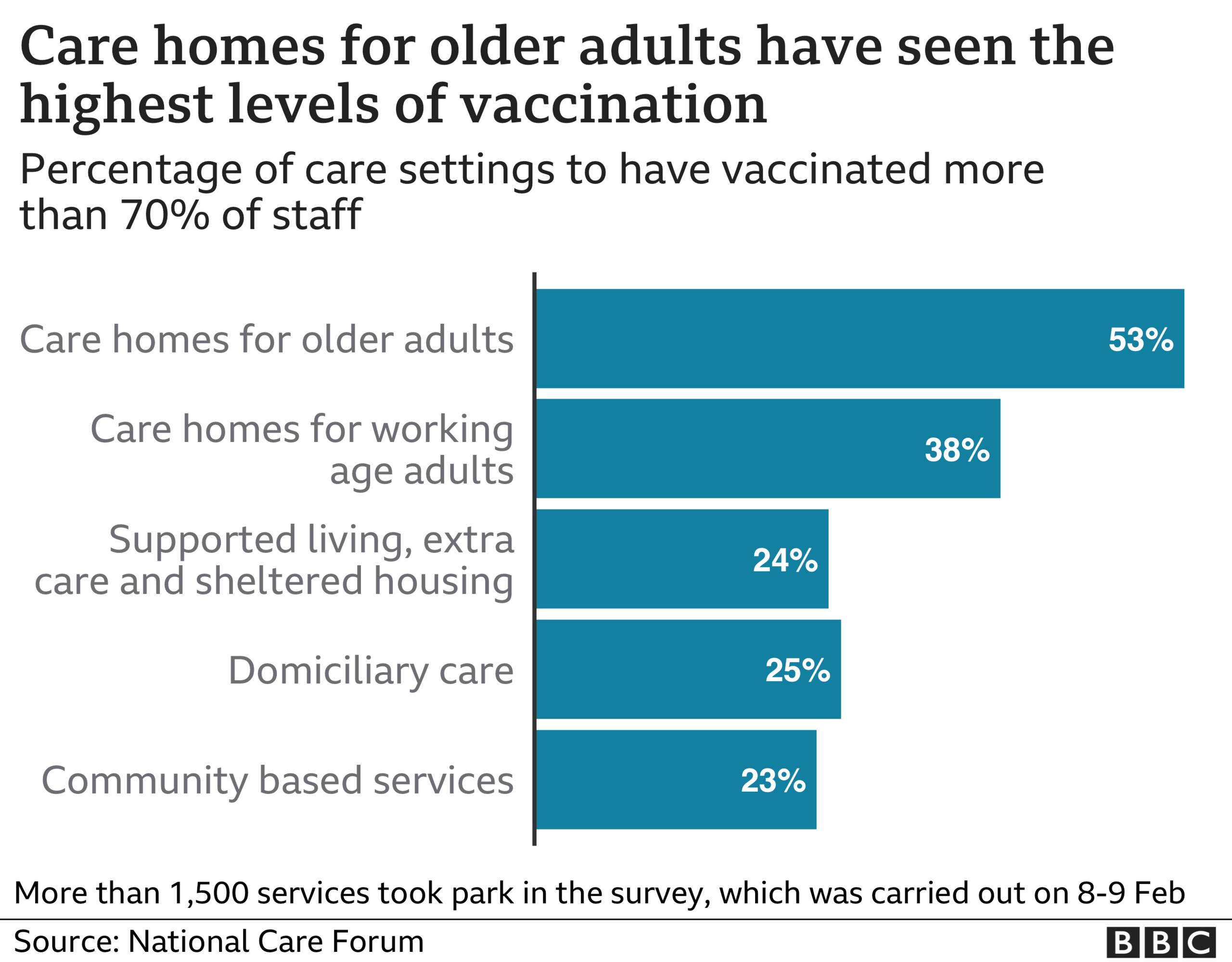
The survey also confirms staff hesitancy is a significant factor in the slow uptake.
Other reasons include:
difficulty getting appointments
health issues
problems with vaccine supply
The Department of Health and Social Care said it was "on track" to meet its target of offering a first dose of a vaccine to all frontline social care workers in England by mid-February.
A spokesman added: "The Covid-19 vaccine rollout is the biggest vaccination programme in NHS history, and so far our heroic health and care staff have vaccinated more people than every country in Europe put together.
"Health and social care staff are playing crucial roles on the frontline of this pandemic and their employers are in the process of contacting them to make sure they get their vaccine as soon as possible."
Low uptake among staff at his wife's care home is a source of major concern for Trevor Salomon, from London, particularly as he says almost a third of the home's residents died with the virus last year.
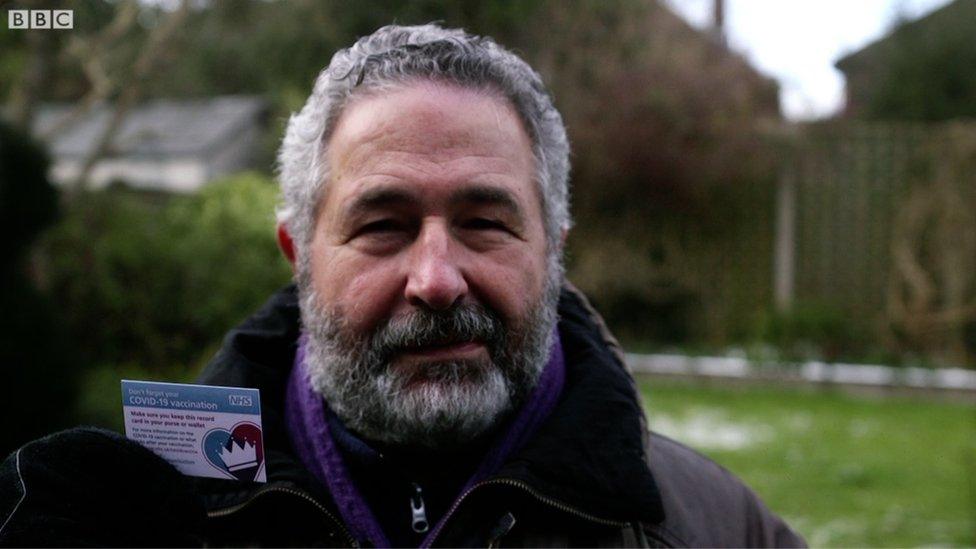
Trevor Salomon hopes the vaccine will protect him and his wife, who has Alzheimer's disease, from the worst of the virus
He and his wife, Yvonne, who has Alzheimer's disease, have had the vaccine.
And he hopes it will at least protect them from severe symptoms.
But only about half the staff have had the jab.
"What makes me sad... is that they have been influenced by what they've seen, read or heard on social media," he says.
"My anger is very much directed at those people who post misinformation and lies about the vaccine."
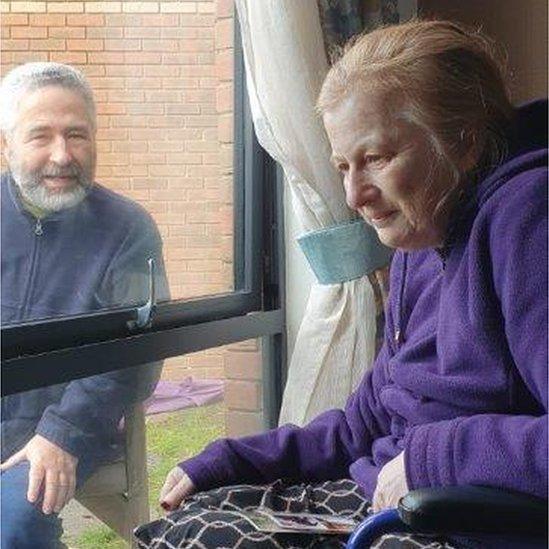
The situation is slowly improving, though, Mr Salomon says, as staff see colleagues being vaccinated without side-effects, "so more are coming forward".
'Something good'
At the Saffron House nursing home, in Bristol, housekeeper Monika Szwolko was nervous the vaccine was "too new" and about who would care for her children if she had side-effects.
But having been persuaded to have the vaccine and had no side-effects, she is keen to recommend it to colleagues.
"I feel like I've done something good," she tells BBC News.
"There is nothing to be scared of."
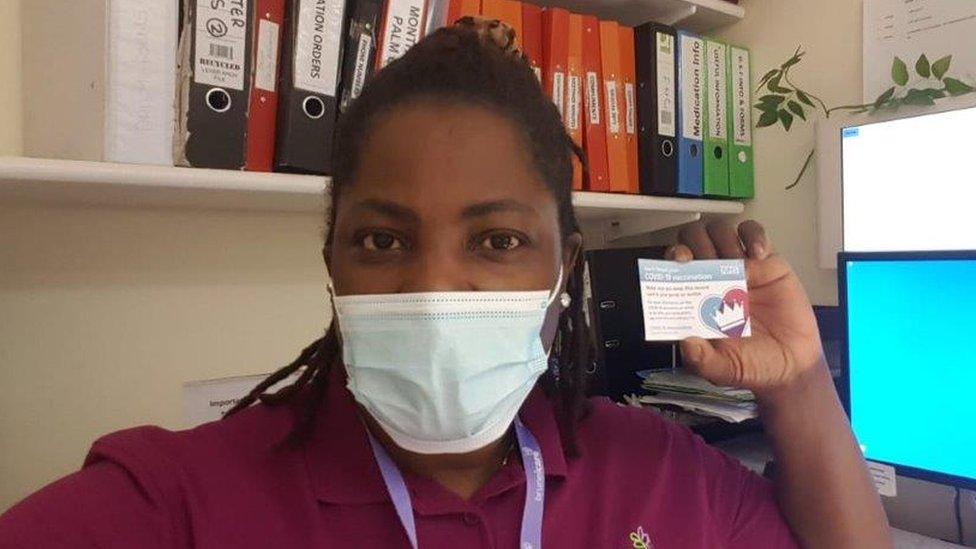
Verona Thomas also decided to have the vaccine
Verona Thomas, a unit manager at the home, was also deterred by the speed with which the vaccine was developed - and what she read on social media about potential side-effects.
But worrying about what would happen to loved ones if she caught the virus changed her mind.
Also, she says: "I work with quite vulnerable adults.
"I provide care for them.
"So it was a case of doing my best to protect them."
National Care Forum executive director Vic Rayner said the survey "would appear to indicate that there are big groups of people who haven't been anywhere near vaccination yet.
"And to get them done within the next five days seems like a bit of a mountain to climb," she added.

OXFORD JAB: What is the Oxford-AstraZeneca vaccine?
YOUR QUESTIONS: We answer your queries
VACCINE: When will I get the jab?
